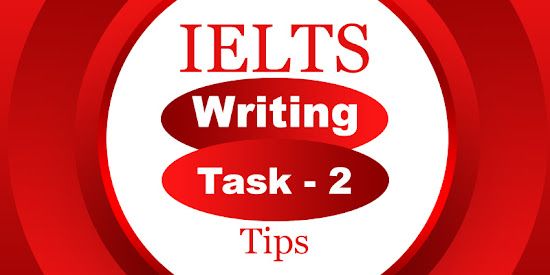When preparing for IELTS Writing Task 2, grammar is not just a supporting skill—it is the backbone of a high band score. Whether you are tackling IELTS General Writing Task 2 or the Academic version, grammatical accuracy determines your writing band descriptors for coherence, cohesion, and accuracy. Examiners look for a wide range of sentence structures, error-free writing, and appropriate word usage. This article explores essential grammar rules for IELTS Writing Task 2, provides tips to avoid common mistakes, and shows how improving grammar impacts your overall band score.
Why Grammar is Crucial in IELTS Writing Task 2
Grammar is one of the key marking criteria in IELTS. A single mistake in tense, subject-verb agreement, or sentence structure can lower your score. Mastering grammar rules helps you:
Write complex sentences for IELTS that show flexibility.
Avoid common errors that confuse meaning.
Meet the requirements for writing words IELTS and clarity.
Express ideas logically for higher IELTS writing evaluation.
Tip: Don’t overcomplicate sentences; accuracy is more important than using too many advanced words incorrectly.
1. Use Correct Verb Tenses
In IELTS Writing Task 2 questions, topics often discuss trends, opinions, or hypothetical situations. Each requires appropriate verb tenses.
- Present Simple: For general truths.
Example: “Education plays an important role in society.” - Present Continuous: For current trends.
Example: “Technology is changing the way we communicate.” - Past Tense: For historical facts or past studies.
Example: “In the past, newspapers were the main source of information.” - Future Forms: For predictions.
Example: “Online education will become more popular in the future.”
Common mistake: Switching tenses unnecessarily. Stay consistent within each paragraph.
2. Master Subject-Verb Agreement
Singular subjects take singular verbs; plural subjects take plural verbs.
Example:
✔ “The number of students is increasing.”
✘ “The number of students are increasing.”
3. Use Complex Sentences Correctly
High band scores require a variety of sentence types: simple, compound, and complex.
Examples of complex sentences for IELTS:
- “Although technology brings many benefits, it also creates social problems.”
- “People read books because they want to gain knowledge.”
Tip: Avoid sentence fragments. Each sentence must have a subject and verb.
4. Avoid Common Preposition Errors
Prepositions are small but powerful.
- Correct: “Interested in reading,” not “interested on reading.”
- Correct: “Discuss with someone,” not “discuss about someone.”
5. Correct Use of Articles (a, an, the)
Many candidates lose marks for article mistakes.
- Use “a” or “an” for singular nouns: “a book,” “an essay.”
- Use “the” for specific nouns: “the importance of technology essay.”
- No article for general ideas: “Education is essential.”
6. Avoid Run-On Sentences
Link ideas with conjunctions like and, but, because, or use proper punctuation.
✘ “Technology is useful it helps in education.”
✔ “Technology is useful because it helps in education.”
7. Correct Use of Punctuation
- Misplaced commas or missing full stops can lower your band.
- Separate two independent clauses with a period or semicolon.
- Use commas in lists: “Reading improves vocabulary, grammar, and creativity.”
8. Vocabulary and Word Choice
Don’t repeat the same words like “good” or “important.” Instead, use synonyms.
Good → Beneficial, advantageous
Important → Significant, crucial
Also, avoid informal words like “kids” or “a lot.” Use “children” and “many.”
9. Avoid Overusing Passive Voice
Passive voice is acceptable, but overuse can make writing unclear.
Active: “Technology shapes our lifestyle.”
Passive: “Our lifestyle is shaped by technology.”
10. Proofread for Common Errors
Before submitting, check:
- Sentence completeness
- Spelling mistakes (e.g., “encouraged make sentence,” “lurched meaning in English”)
- Punctuation
How Grammar Helps with Other IELTS Sections
Good grammar isn’t limited to writing; it helps in:
- IELTS Speaking Topics: Clear and error-free sentences improve fluency and coherence.
- Paragraph Writing with Questions and Answers: Useful for class exercises and preparation.
- Letter Writing (Task 1 Formal Letter): Essential for IELTS General Writing Task 1 samples band 9 PDF level writing.
Examples of Common Grammar Mistakes
- Wrong: “The benefits of reading essay is many.”
- Right: “The benefits of reading essays are numerous.”
Sample Sentence Using Target Keywords
“In IELTS General Writing Task 2, candidates often face writing task 2 questions related to the benefits of reading essay or the importance of technology essay. Using accurate grammar, varied structures, and appropriate vocabulary helps achieve a higher band score.”
Additional Resources
- Practice with IELTS writing task 1 questions and IELTS writing task 2 questions.
- Learn how to build complex sentences for IELTS from authentic sources.
- Explore paragraph writing topics for class 4 or letter writing topics for class 8 to strengthen fundamentals.
Grammar is the foundation of effective writing for IELTS. From correct tenses and subject-verb agreement to sentence variety and punctuation, mastering these rules will elevate your performance in IELTS Writing Task 2. Remember: accuracy first, complexity second. Keep practicing, evaluate your progress through IELTS writing evaluation, and soon, writing essays will feel as easy as reading them.
